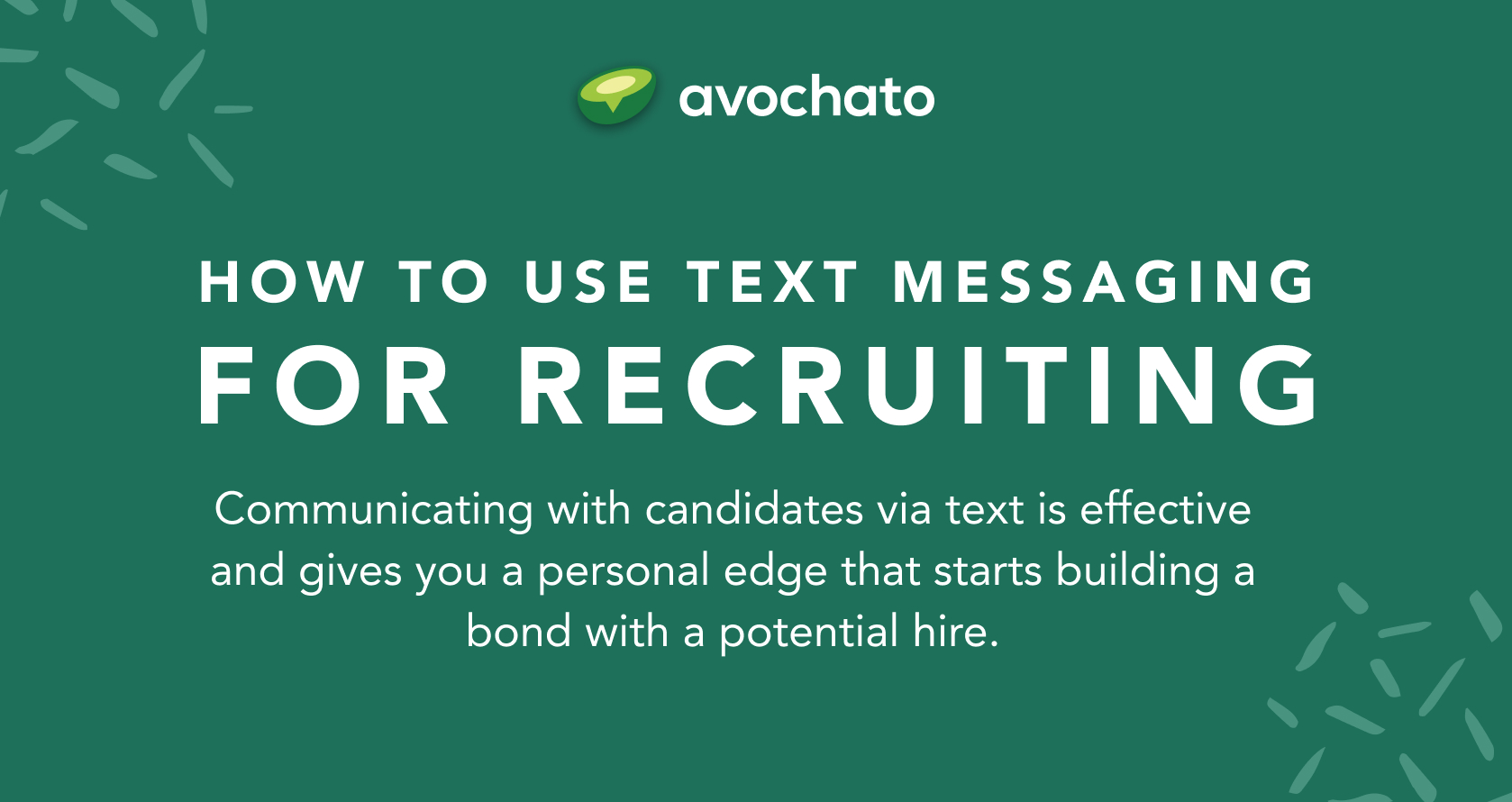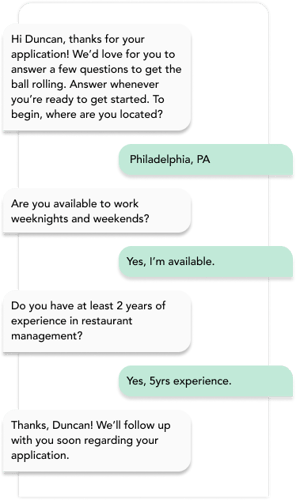
Traditionally, recruiting candidates requires hours of phone tag and scheduling and rescheduling interviews.
From the moment a job is posted to the time a new hire is onboarded, there are lots of touch points that you need to communicate with candidates.
Text messages can take the hours you spend on the phone leaving messages for prospective employees and turn them into more productive activities for your business.
Texts are fast and have a much higher response rate than email, which means you can deliver information and learn what you want to about candidates quickly, saving everyone time.
Here are some of the easiest ways to use recruiting text message examples:
Screen candidates with a text survey
Most companies have a screening process in place to make sure candidates are a good fit for a position before they’re considered for an interview. Scheduling and hosting these screening calls can take hours of a recruiter’s time.
Using text messaging to, instead, conduct an in-text survey to get your candidates screened could save you time and hassle. This survey can be sent to all 50 candidates at once, rather than you having to call each one by one and play phone tag until you can schedule the call.
This approach saves tons of time and gets your screening step accomplished with very little effort.
Moving franchise Two Men & A Truck uses surveys to help with recruiting via text. The company sends candidates a mini-application through SMS, asking them to fill in basic information like their location and available hours. This info helps the company screen all applicants to determine which are serious candidates and should be pushed to the next level of recruitment.
Here’s a recruiting text message example that acts as a screening survey you can send to your candidates:

Send interview details
One of the most important messages you can send to a candidate is one scheduling their interview. It’s essential that this message be brief and informative. You can all but ensure your message is seen if you send it via text as opposed to email or leaving a voicemail. Text messages, on average, have an open rate of 98 percent, which means the information you pass on is more than likely to be read by the candidate in a timely fashion.
Here’s a recruiting text message example you might use to schedule an interview:

Reschedule interviews
Sometimes schedules conflict and things come up, causing you to have to change the time of an interview. Instead of taking the chance that the candidate might not answer the phone when you call or not see your email, you could send a text message to make sure your reschedule request is seen and have a better chance of a response.
Here’s a recruiting text message example of a basic request to reschedule an interview:
.png?width=406&name=Frame%20146%20(1).png)
Send follow-up messages
Follow up with candidates quickly and easily with a text that can be personalized and sent to all candidates that come in for an interview. Here’s a recruiting text message example of a follow-up message:
.png?width=406&name=Frame%20146%20(2).png)
Onboard new employees
A final step in the recruitment process often includes onboarding new employees to the team. Text messaging new employees is an overlooked method of communication that can not only personalize the experience for your new recruit but can also make the hiring transition go quickly and smoothly.
Here’s an example of a recruiting text message example you might send to a new hire:
.png?width=406&name=Frame%20146%20(3).png)
These templates are easy to reproduce with your own unique brand voice and easy to personalize with your candidates’ information. The bottom line is that texting with your recruits rather than just emailing gives you a personal touch that is more relatable. After all, 85 percent of people keep their phone at arms reach at all times. Seventy-five percent of millennials consider phone calls to be “too time consuming,” and 18–24-year-olds send an average of 109.5 text messages a day.
Communicating with your candidates the way they’re most likely to communicate with friends and family gives you a personal edge that starts building a bond with a potential hire long before the papers are signed.
Here are some more articles we think you’ll like:
Why you should be using text messaging for recruiting
The benefits of texting your field team
Our startup guide to staying social while remote
How SMS can make shift management easier



